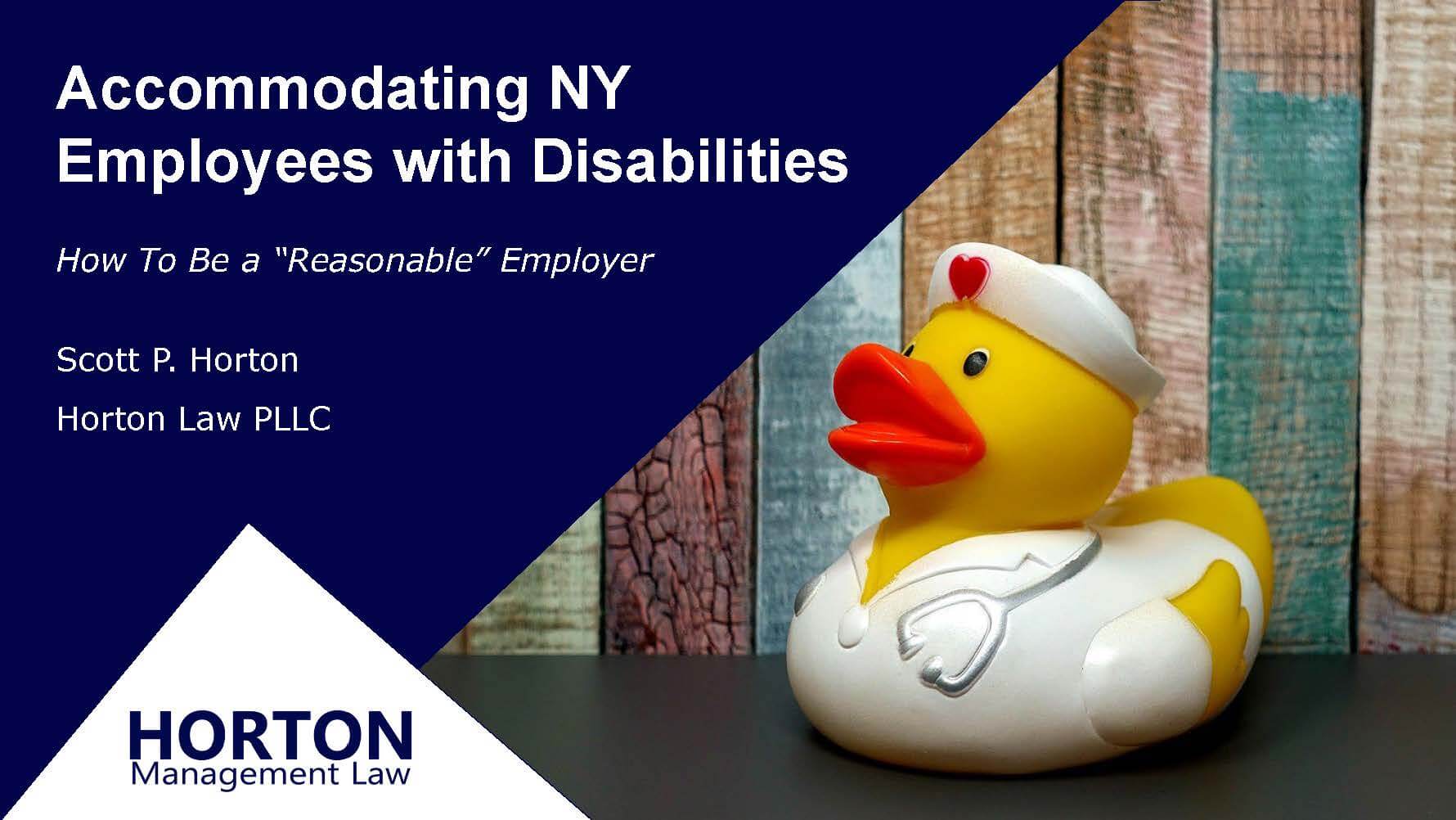Under the Americans with Disabilities Act (ADA), employers are required to provide reasonable accommodations to employees with mental disabilities to enable them to perform the essential functions of their jobs. Leaves of absence often qualify as a reasonable accommodation. This includes allowing employees to use either accrued paid leave or unpaid mental health leave to treat or manage their conditions.
Mental Health “Disabilities”
Federal law prohibits employment discrimination based on mental disability. The ADA broadly defines disability as a “physical or mental impairment that substantially limits one or more major life activities.” This definition also covers employees with a record of having a mental disability or a perception of having one.
Many state anti-discrimination statutes also prohibit discrimination based on mental health conditions. Definitions of “disability” may vary under state law, sometimes expanding on what conditions the ADA protects.
Mental health conditions that might qualify as disabilities under the ADA include depression, anxiety, and post-traumatic stress disorder (PTSD), among many others.
Click here to read more about “What Is a Disability Under the ADA?”
Employee Privacy
Under the ADA, employers cannot require applicants or employees to disclose a disability, with a few exceptions. Employees may need to disclose mental disabilities when they are requesting a reasonable accommodation. Then, employers can ask for medical records describing the disability and employee limitations. All information related to employee disabilities must be kept confidential.
Requesting Mental Health Leave
Employees can request an accommodation at any time during employment. The request can be in plain language and does not have to include the term “reasonable accommodation.” Requests need not be in writing. Employees typically provide notes from their doctors. Employers may also require employees to undergo evaluation from a health care provider of their choice as long as the employer covers the cost.
The U.S. Equal Employment Opportunity Commission (EEOC) oversees the enforcement of the ADA. In guidance documents, it gives an example of a situation where a secretarial employee requests time off “because of her medical condition.” This statement is sufficient to put the employer on notice that the employee is requesting a reasonable accommodation. But the employer can ask for medical documentation to learn the specifics of the employee’s condition and limitations.
Employers do not have to grant a leave of absence every time the employee requests one. But they must determine whether the employee has a disability, whether leave is a reasonable accommodation, and whether, even if reasonable, the leave would pose an undue hardship on the employer. All of these determinations depend on the circumstances.
Click here to read more about “Reasonable Accommodations of Disability in Employment.”
Return to Work
When returning from leave, employers can require employees to undergo a medical examination to determine fitness for duty. Employees often ask for extended leave or other accommodations upon return. Employers may honor these requests. But organizations are not required to provide accommodations that would create an undue hardship on the workplace. Nor must employers permit an employee to work if doing so would pose a direct threat to anyone’s health or safety.
The EEOC gives the example of an employee returning from a leave of absence after she underwent a hospital stay and adjusted her medication. The employer may request a fitness-for-duty evaluation to ensure the employee can still perform the essential functions of the position. But the medical examination must be limited to her mental condition.
What Do the Courts Say About Mental Health Leave?
Employers must evaluate every situation carefully to determine their obligations under the ADA.
Here are just some examples of what courts have said in specific cases:
In one case, a teacher with an anxiety disorder requested an extended leave of absence as an accommodation. The court upheld the employer’s refusal to grant the leave because there was no certainty that the teacher would be able to return to work at the end of the leave
In another case, a manufacturing employee returned from leave due to severe depression. Upon return, he requested the accommodation of having no contact with co-workers or supervisors. The court upheld the employer’s determination that this accommodation was unreasonable.
These are just two among numerous cases that have resulted in litigation. Obviously, employers would prefer to avoid litigation under the ADA, whether related to mental health leave or other employee disability issues.
No Retaliation
Employers (through supervisors and co-workers) may not retaliate against employees for requesting or taking mental health leave. This includes both taking tangible job actions (e.g., firing) or making the employee’s workday miserable (e.g., harassment).
Employer Takeaways
According to the National Institute of Mental Health, about 18.5% of the United States population report having a mental health condition during the past year. Thus, mental disabilities are among the most prevalent types of disability that the ADA covers.
Managers and supervisors must accept that mental health conditions qualify for the same general protections as physical impairments. As with many disability accommodation issues, mental health leave is often not a straightforward subject. Accordingly, employers should consult with an experienced employment attorney when these issues arise.

